
Dominican Republic 2024
Supported by the Association of Corporate Counsel






Legal manager Dominican Republic | Cerveceria Nacional Dominicana

Legal and compliance manager | E.T. Heinsen

Head of legal document preparation department | Ministerio de Hacienda de la República Dominicana
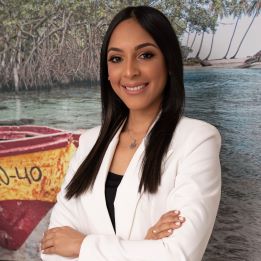

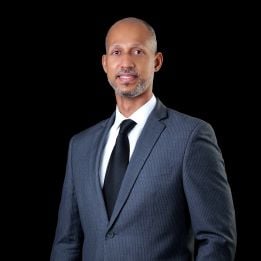
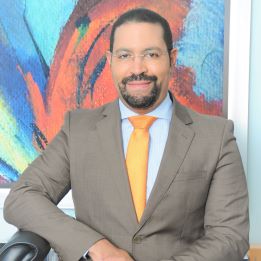


Vice president of legal services and corporate governance | Banco Múltiple BHD

In-house legal manager | Agentes y Estibadores Portuarios (Ageport)
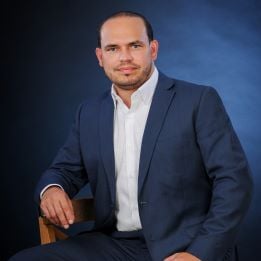


Legal and compliance director | Primma Valores, Puesto de Bolsa

Vice president, legal and governmental affairs | AES Dominicana


Legal and compliance director | Nestlé Dominicana

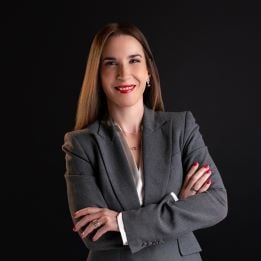
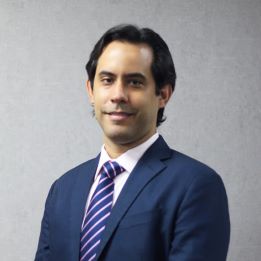
General counsel and corporate governance director | Banesco Banco Múltiple

Assistant general counsel, legal operations – Latam and Caribbean | Phoenix Tower International


Senior associate | GASA Consultores






Corporate legal manager | Banco de Desarrollo y Exportaciones (BANDEX)


Head of the verification of standards and legal compliance department | Ministerio de Hacienda de la República Dominicana

Corporate legal manager | Pasteurizadora Rica (Grupo Rica)
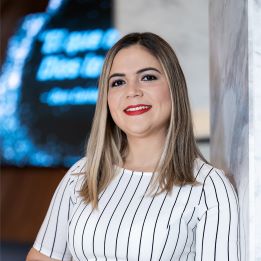

Manager external affairs Caribbean | Philip Morris Dominicana

Senior manager of regulation | Asociación de Bancos Múltiples de la República Dominicana (ABA)

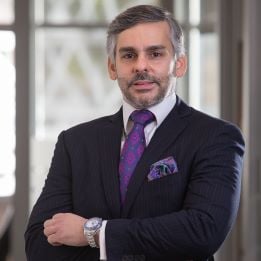
Legal director | InterEnergy Group (Dominican Republic)



Legal affairs and compliance manager | Industrias Banilejas
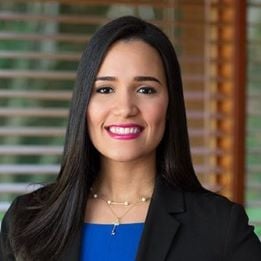


Vice president, general counsel - Latam | Phoenix Tower International


Legal manager | Banco Múltiple Promerica de la República Dominicana

Vice president of financial intermediation unit, consulting | Banco Múltiple BHD



Legal director | Tesorería de la Seguridad Social (TSS)




Legal and compliance manager | UC – United Capital Puesto de Bolsa




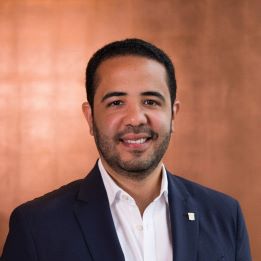


Head of legal | Empresa de Generación Eléctrica Punta Catalina (EGEPC)

Legal counsel | Globalia Servicios Corporativos RD

In-House lawyer | Lifestyle Holidays Vacation Club




Legal and regulatory director | Altice Dominicana

Legal counsel | Aeropuertos Dominicanos Siglo XXI (AERODOM)

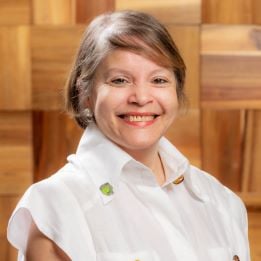


General counsel | Banco de Desarrollo y Exportaciones (BANDEX)
Ena has more than 20 years of professional practice in different areas of law, with extensive experience in public and private management, handling highly complex cases throughout her professional career,...


Vice chancellor of foreign affairs and legal counselor | Universidad Tecnológica de Santiago (UTESA)

Legal director | Asociación de Bancos Múltiples de la República Dominicana (ABA)

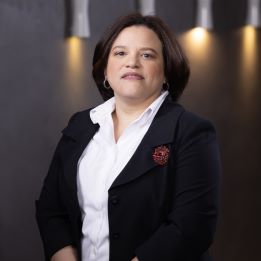

Legal advisor | Pontificia Universidad Catolica Madre y Maestra (PUCMM)

Legal director | Corporación Hotelera del Mar
Liliana Torres has 19 years of experience mainly in the in the eastern region of the Dominican Republic (Punta Cana, Bávaro, Cap Cana)., and her main practice areas are civil,...
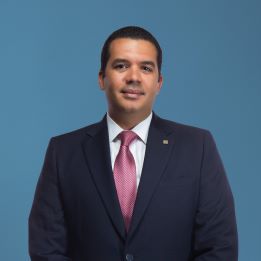
Vice president of legal affairs and regulatory compliance | Banco Popular Dominicano, Banco Múltiple
Graduated in Law cum laude from the Pontifical Mother and Teacher Catholic University, has completed master’s studies in Economic Analysis of Law with specialisation in financial operations at the Torcuato...





It has been a true privilege to lead the research for The Legal 500 GC Powerlist: Dominican Republic, 2024, once again highlighting the outstanding legal talent and innovation within this dynamic region. The energy and enthusiasm of the in-house counsel we had the pleasure of speaking to was truly inspiring, but what stood out even more was the remarkable evolution in the scope and complexity of the work they are driving across various industries. This edition offers a closer look at the key projects they’ve been involved in, how they navigate the ever-shifting legal landscape, and the issues that matter most to them personally and professionally.
This year, a significant theme that emerged from our conversations was the role of sustainability and ESG initiatives, particularly in how legal teams are embedding these values into their companies’ strategies. Many of the in-house counsel shared how their legal departments are becoming critical partners in driving sustainable growth and adhering to global standards on environmental, social, and governance matters. For example, Lauren Vargas, Corporate Legal Manager at Pasteurizadora Rica emphasised that ‘our role as legal counsel is to ensure that every step in our sustainability roadmap aligns with both local and international regulatory frameworks’.
Another striking trend we observed was the continued acceleration of digital innovation across industries. Legal teams are not just supporting this transformation—they are often at the forefront, crafting the frameworks that allow these advances to take place securely and within the bounds of the law. Yudith Castillo shared how ‘digital transformation is a significant and fascinating challenge in many countries, as it will inevitably bring about new laws or modifications to existing ones, which cannot be delayed. I am a firm believer in staying updated with such developments, striving to be open-minded and objective in recognising and understanding what we once considered unthinkable.’
Despite the challenges posed by global uncertainties and shifting regulatory environments, the resilience and adaptability of the in-house counsel in this edition shone through. Staying informed and agile was a common theme, with legal professionals detailing how they consistently engage with updates to laws and best practices. This includes everything from attending international conferences to seeking specialised advice from external experts.
In addition to their legal achievements, the counsel we spoke with also shared their dedication to causes that resonate with them personally. This year’s responses ranged from diversity and inclusion to mental health advocacy in the workplace, reflecting the broader role that in-house lawyers are playing in shaping company culture and driving positive change within their organisations.
We would like to extend our sincere congratulations to all the in-house counsel featured in this 2024 edition of the GC Powerlist: Dominican Republic. Their innovation, dedication, and leadership continue to set new benchmarks in the legal profession, and it has been an honor to engage with such a talented group of professionals. We look forward to seeing their ongoing contributions and impact in the years to come.
Margherita Birri, Lead researcher: GC Powerlist Dominican Republic 2024
GC Summit Colombia 2026 brought together senior in-house counsel, private practice lawyers and legal industry professionals for an afternoon of discussion focused on the regulatory, commercial and practical challenges shaping the legal landscape across Latin America. Beginning with registration and a light lunch, the programme set a collaborative tone, allowing attendees to connect ahead of a series of substantive panel sessions.
Following opening remarks, the first panel, sponsored by Holland & Knight, examined antitrust compliance in Colombia and its growing importance for companies operating in an increasingly scrutinised and fast-moving environment. The discussion highlighted how competition law has evolved into a strategic business concern rather than a purely legal one. Panellists shared in-house perspectives on designing and updating effective compliance programmes, managing competition risks in dynamic markets, and responding to investigations and information requests from authorities. Particular attention was given to aligning legal strategy with business objectives and to the expanding role of technology, including artificial intelligence, in supporting compliance, risk management and decision-making. Drawing on practical experience, the session offered grounded insights into emerging trends and best practices for navigating antitrust compliance today.
The second panel, sponsored by Posse Herrera Ruiz, shifted the focus to labour and employment law and how organisations can prepare for 2026 without burnout. Against a backdrop of economic uncertainty, regulatory change and shifting workforce expectations, speakers explored how employers can balance legal risk with operational resilience. The discussion covered workforce restructuring, labour costs, flexibility, union relations and the increasing relevance of wellbeing and ESG considerations. Rather than abstract forecasts, the panel concentrated on realistic strategies to anticipate disruption, respond to change and make informed decisions, providing attendees with a pragmatic framework for facing the coming years with clarity and confidence.
After a short coffee break, attention turned to regional investment trends with a session sponsored by Pellerano & Herrera on the Dominican Republic. The discussion examined the regulatory developments, sector-specific opportunities, and legal considerations influencing both foreign and domestic investment. Speakers reflected on recent reforms and market dynamics, as well as the practical challenges faced by companies operating in or entering the jurisdiction. The panel offered a forward-looking view on why the Dominican Republic continues to attract international interest and what businesses should be mindful of as the legal landscape evolves.
This was followed by a fireside chat sponsored by ECIJA GPA focusing on Ecuador’s energy sector. The conversation addressed the ongoing crisis and its implications for investors and businesses, providing insight into the current legal and regulatory framework and the key risks involved. Alongside these challenges, the session also explored emerging opportunities within the sector, offering a balanced perspective on how stakeholders can protect investments while identifying areas for potential growth in a difficult environment.
The Congress continued with a panel sponsored by Gamboa, García, Roldán & Co. on artificial intelligence in Colombia. The discussion explored the developing regulatory oversight of AI, including draft legislation in Congress and public policies introduced by the national government. Speakers examined the legal and practical risks associated with implementing AI tools, such as questions of liability, algorithmic transparency and accountability, as well as the broader implications for the future of legal practice. The session underscored the need for legal teams to stay engaged with technological change while maintaining robust governance frameworks.
The day concluded with an interactive session sponsored by Legal 500 on the day-to-day practice of an in-house lawyer. This final panel offered an honest look at the realities of working within a business, addressing both legal and non-legal challenges. Topics included the importance of soft skills, managing and developing talent, working with Gen Z, and the role of rising stars within legal teams. With questions encouraged throughout, the discussion resonated strongly with attendees, closing the event on a practical and reflective note that captured the evolving nature of the in-house role.
The event provided a comprehensive and regionally informed overview of the issues currently shaping legal practice, combining strategic insight with practical guidance across competition, labour, investment, energy, technology and in-house management.
It concluded with an excellent selection of canapés and drinks, enjoyed in a lively room filled with engaged and enthusiastic attendees.